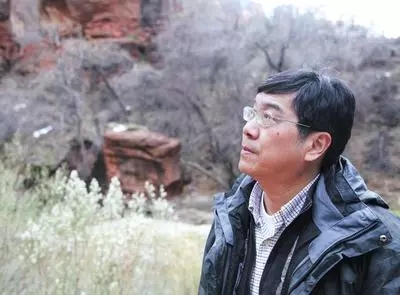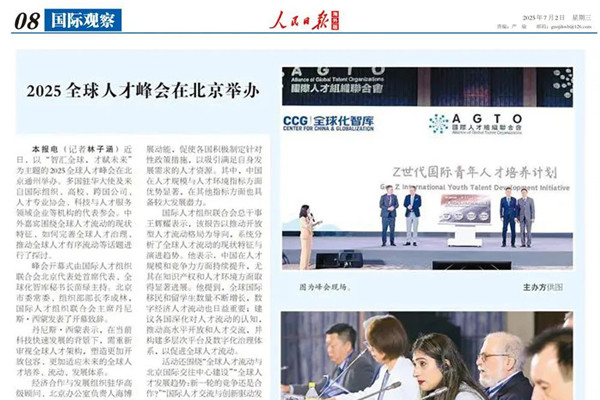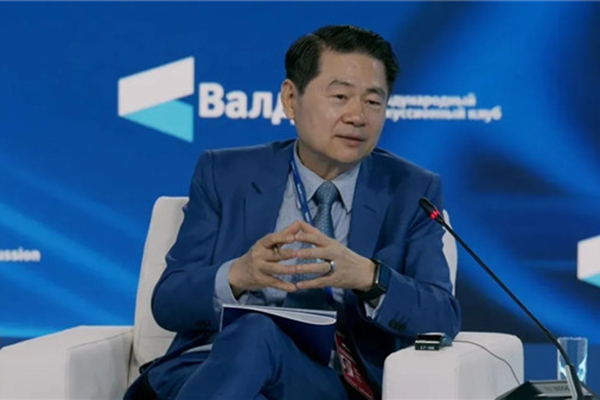【South China Morning Post】China’s “golden ticket” to international leadership in biotech
2018年3月12日
Chinese scientists are making an impact at the international level, setting up China as a dominant player in the biotechnology and healthcare sector.
China, the country that was once thought to be the "Sick man of Asia" in the late 19th and early 20th centuries, is clearly sick no more. Not only has the country achieved remarkable economic progression, China is also fast becoming the powerhouse in biotechnology and healthcare technology in the recent decade.
Exactly a decade ago, the Chinese government launched the "Thousand Talents Plan" in a bid to lure leading Chinese talents – e.g. scientists, academics and entrepreneurs – living in overseas back to the country. It also opened up to foreign individuals seeking to settle in China, hoping to attract up to 2,000 talents over a five to ten year period. Therefore, three years after the initial launch; in 2011, the government further expanded the scheme to encompass younger talents and foreign scientists.
Various provincial governments and local universities resonated the Chinese government’s call and dove into the programme, setting local targets and rewards to attract talents to their respective regions.
"If a guy becomes a Thousand Talent, there are cases where that guy is getting multiple local benefits – local incentives, local grants," said Director of the Centre for China & Globalisation (CCG), Wang Huiyao, in his correspondence with the South China Morning Post.
Propelling Chinese research to greater heights
To date, the programme has attracted more than 7,000 people, according to a report by Nature. The influx of experts has driven the overall funding for research and development to quadruple to USD191 billion from 2005 to 2013 – as the Thousand Talents Programme sought to repatriate experts.
This has directly benefited the biotechnology sector, especially in the field of gene therapy – specifically in the use of CRISPR-Cas9 gene editing technology – to alter the DNA of human embryos. Although such technology was considered controversial by many – a large part due to ethical considerations of interfering with "natural" human genome and the theological argument of "playing god" – the technological achievement by the Sun Yat-sen University in Guangzhou was still considered significant in the history of biotechnology.
“The level of available resources is incredible in terms of the freedom, the flexibility that gives key leading Chinese scientists to move very, very fast on a given research track if a new opportunity arises,” stated James Wilsdon, Professor of Science and Democracy at the University of Sussex.
The rapid rise of China in the field of biotechnology also sees the progressive growth of the domestic pharmaceutical industry. It switched from relying heavily on generic drugs to highly lucrative, but risky and competitive biological treatments which have been spearheaded by the West.
Biotech companies perhaps, looked for China for cheap labour in the past; but now, it may instead find competition there.
Thousand Talents Programme: Too good to be true?
The Thousand Talents Programme has, no doubt, achieved many milestones to accumulate valuable human resources within the Chinese territory – but there have been reports indicating that the programme is not as successful as it seemed.
For example, more senior top talents who hold tenured positions in developed countries are reluctant to give up existing positions for a risky venture in an unfamiliar country which politics dictate different human-rights and freedom-of-speech policies.
"That’s something wrong with the programme design from the beginning," commented Cong Cao, Professor of Chinese Studies at the University of Nottingham Ningbo, China (UNNC), further highlighting that “for Chinese scientists who have been abroad for years, it is difficult to be reintegrated into the system.”
The programme is also prone to fraud and abuse, according to Cao, as some unscrupulous institutions may attempt to cheat the governments by falsifying the qualification of potential hires – such as those who are already in China.

Funding streams still often depend on connections to ‘old-boy networks’, making it difficult for expatriates to reintegrate into the Chinese system. Photo credit: Nature
Many also expressed dissatisfaction over Beijing’s seemingly favourable treatment for foreign-educated Chinese – many of whom do not even speak or read Chinese. Institutions would hire scientists with full-time commitments overseas, assuring them that their time sheets will not be reviewed.
Some scholars “drop in for two weeks of the year, and that’s it,” said Neil Foster, a chemical engineer at the University of New South Wales in Sydney, Australia, who received a Thousand Talents award in 2010 to work part-time at the Beijing University of Chemical Technology.
“There could be problems, there could be fake [scholars], there could be scandals,” highlighted Wang. However, he asserted that “the general picture and the message they’re sending to attract talent is good.”
Many Thousand Talents recipients suggest that ignorance of award conditions is common. Coupled with the uncertainty of the outcomes of the programme, time can only tell if it would help China unseat other incumbent Western countries from their rule of the scientific industry – to proclaim itself as the leader.
Meanwhile, other countries, particularly the United States, may have to prevent a brain drain to compete with the Chinese.
From MIMS,2018-3-1






